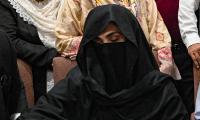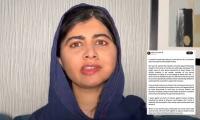Karachi
Education in our set-up has all along been considered a privilege of the rich and the elite and not a commodity for the poor. This distorted outlook has been responsible for our stunted socio-economic scenario.
These were the observations of Dr Muhammad Ali Sheikh, vice-chancellor of the Sindh Madrasa-tul-Islam University (SMI) while speaking at the launch of the book, “Education policies in Pakistan:
Politics, Projections, and Practices”, by Dr Shahid Siddiqui at the headquarters of the Oxford University Press (OUP), Pakistan, on Friday evening.
In his erudite and thought-provoking discourse, Dr Sheikh said that while the rich and the famous could easily afford to send their offspring to the best of educational institutions both here and overseas, there were no educational incentives or facilities for the less fortunate, with the result that the chasm between the handful of haves and the teeming have-nots was widening with the passage of each day.
In a show of intellectual magnanimity, he displayed a 51-page book which, he said, was the educational policy of the colonial rulers during the early colonial period when Kolkatta was the capital.
He said that it was a marvel that an educational policy that was spread over just 51 pages produced stalwarts in all fields like Muhammad Ali Jinnah, Allama Iqbal, Nehru and so many other intellectuals.
“If the British could devise such a beneficial policy for their subjects, why have we failed?” he queried.
He quoted Indira Gandhi’s interview to an Indian journalist who had asked her the reason for India’s stunted education policies.
While there was no answer forthcoming from Mrs Gandhi, the journalist herself answered the question saying to Mrs Gandhi, “You Pundits consider yourselves the elite and want to retain a stranglehold over the masses. Thus, you don’t want the people to have access to education.”
“All educational policies in Pakistan failed to deliver because we were not sincere,” he said.
Abbas Hussain, director, Teachers Development Centre, compared the constituents of an educational policy to the seven colours of the rainbow. These, he said, were: vision; curriculum; textbooks;. teachers’ training; schools’ infrastructure;
examination/assessment; and the student. He said teachers’ training was the most vital element as a student in the hands of a poorly trained teacher was sure to be a failure in life.
At this juncture, Ameena Saiyid, interjected to say that the Oxford University Press had been training 40,000 teachers a year.
Author Shahid Siddiqui said education should lead to change and development as, he said, the gap between the developed and the developing world was a gap of knowledge.
He said that while framing educational policies, the political context was vital, and in this context he quoted the case of the 1948 speech of Mr Jinnah at Dacca laying down that Urdu would be the official language of Pakistan, something that was resisted by the Bengalis who wanted Bengali and that they were in the majority. Education, he said, was something that was essentially to be passed on to the coming generations. Education, he said, was meant to transform lives.
He outlined three essential elements of education: freedom of expression; freedom of thought; and freedom of policy.
Afzal Tajik, associate director, IED, Aga Khan University, said that such a book had been long awaited, a book that highlighted the lacunae in our education system and planning. He said the book also pointed to the direction for the future in light of the
well-researched evidence.
Earlier, Ameena Saiyid, managing director, OUP (Pakistan), introduced the speaker and listed his credentials.
She said the book showed us how the thinking on education in Pakistan had developed, often stamped by the people at the helm of government.
She said Dr Siddiqui had given a vivid account of the language controversy and how it was decided that Urdu would be the language of state and medium of instruction in all provinces.
This photograph shows commuters driving on a busy street in Karachi. — AFP/FileFrom the River to the SeaThe Sanat...
The Sindh High Court Hyderabad Registry. — Facebook/Sindh High Court Hyderabad HYDERABAD: The Sindh High Court ...
The screenshot shows a memorandum of understanding being singed between the National Highways and Motorway Police and...
Representational image of police tape at an incident site. — Unsplash/FileA local councillor who was wounded during...
In this screengrab, Sindh police chief Ghulam Nabi Memon chairs a meeting on March 25, 2024. — Facebook/Sindh...
Mervyn Francis Lobo, chief executive officer of the Marie Adelaide Leprosy Centre can be seen with Dr. Ruth Pfau ....







